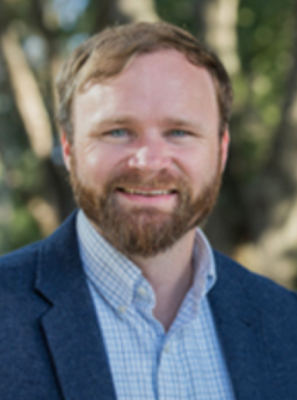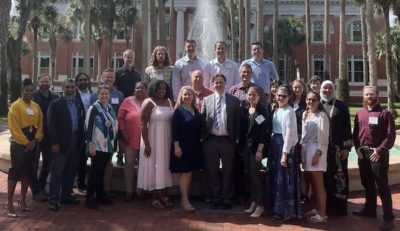Exploring Spiritual and Religious Competencies


The effect of the COVID-19 pandemic on health is complicated and multifaceted. An unfortunate result of the past two years is that mental health has become a major public health concern.
According to the National Institutes of Health, the United States has experienced a 300% to 400% increase in the reported occurrence of anxiety and depression symptoms during the pandemic. Each day, more and more people seek counseling to overcome the trauma that has manifested from two years of isolation, pain and fear. People are hurting and turning to the mental health community for healing.
Yet, a silver lining of the pandemic has been the renewed investigation into how we are treating mental health concerns at a societal level, according to Stetson’s Jesse Fox, PhD, associate professor of Counselor Education.

“Part of that renewed interest in mental health has been reviewing how competent our mental health professionals are at addressing the multitude of concerns that individuals are bringing into session with them,” Fox cites. “This idea of ‘competence’ recently has been mostly associated with multiculturalism — the understanding that people from different cultural backgrounds experience the world differently.”
Further, Stetson, by virtue of the John Templeton Foundation, is in the middle of those efforts.
Stetson Leads Research Efforts
Fox is a project leader for the Spiritual and Religious Competency Project, a $5.3 million grant funded by the John Templeton Foundation in 2021. Stetson received almost $2 million of the grant, which is being used to fund a total of 12 project efforts nationwide. (In late August, Stetson hosted the 12 investigator teams.)

Stetson’s research work is in collaboration with colleagues at the University of California San Diego and the University of South Alabama. The funding is intended to explore, expand and train religious and spiritual competencies in mental health practice — with the expressed goal of developing spiritual and religious competencies in clinical training through research and program development.
“Societally, we have seen how important it is to keep a keen eye on our mental health. We expect that when we go to a mental health professional, we will be receiving the best care available, tailored to our specific needs. This project seeks to fulfill this expectation by ensuring that spiritual and religious competence be made available to every practitioner, whether they are licensed or still in training.”
– Associate Professor Jesse Fox, PhD
Grant recipients include institutions from coast to coast, such as Stanford University Psychiatry and the Harvard University Medical School’s McLean Hospital, among many others. Currently, their efforts are focused on developing, validating and/or investigating tools for training that can be used in advance education and professional development. The ultimate goal: to improve how our mental health practitioners approach spiritual and religious resources and struggles in therapy.
The project is set to conclude in August 2024, and all materials, training tools and assessments that are produced will be available through open-source websites, such as Open Science Framework, to ensure they can be easily accessed and used by the entire mental health community.
‘Keen Eye On Our Mental Health’
Fox believes the size of the grant, which established a 40-year record at Stetson, reflects a fundamental change in how spirituality, religion and mental health are understood.
“It has now become evident from years of health research that when people report possessing a robust spiritual or religious life, it tends to also be associated with several health vital signs from immune system functioning to depression,” he explains. “Likewise, when people experience strains or conflicts within their religious or spiritual domains, they tend to report just the opposite: greater risks for disease and disorder.”
As a result, the mental health professions have now recognized that these topics need to be included as core dimensions of multicultural identity, Fox continues.
“Societally, we have seen how important it is to keep a keen eye on our mental health. We expect that when we go to a mental health professional, we will be receiving the best care available, tailored to our specific needs,” he says. “This project seeks to fulfill this expectation by ensuring that spiritual and religious competence be made available to every practitioner, whether they are licensed or still in training.”
His conclusion for the mental health practice: More exploration, expansion and training for religious and spiritual competencies is needed — with Stetson taking a lead role.
“We cannot do the best for our client unless we fully understand them,” Fox says. “This generous grant to Stetson ensures that we can fulfill our ethical obligations as mental health professionals and give our clients the greatest chance at recovery.”



